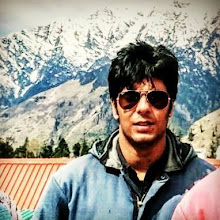It’s quite sad that the biopic
honouring a man such as Dashrath Manjhi should leak online almost 3 weeks prior
to release. That being said, Manjhi released this friday, starring Nawazuddin
Siddiqui in the eponymous lead. Fans of the actor, that have grown in explosive
numbers, especially since the Gangs of Wasseypur duology, will be thronging the
theatres regardless of the online leak. For all others, let’s see how much
justice this movie does to the history of the Mountain Man.
Story (pocket book version) –
Dashrath Manjhi was a labourer whose lady-love, Faguniya (Falguni Devi), died upon slipping off
a mountain that stood in between his village and the closest town, Wazirganj,
thereby reducing the reach of medical facilities. Her death sets the man off on
a mission to make a road through the mountain, that would eventually shorten
the travel distance between the two places from 70 kms to a mere 15 kms, over a
period of 22 years.
If you’d remember the Gangs of
Wasseypur films, then you’d recall the slick, smooth portrayal of the average
Bihari, so easy-flowing and so natural, that one is completely lost,
pleasantly, despite all the abuses and the gore and the excessive depiction of
cannabis. It’s a wonder why the same can’t be said for any other film set in
Bihar. Manjhi joins the league of the said category of movies, where every line
of the script, every joke, the sets – seem like they’re part of a high school
theatre club’s setting.
Manjhi is an uphill climb through clichéd
narratives, stereotypical Bihari performances and the unreasonable compulsory length
of a masala Bollywood film. The reason that this is sad, in this scenario, is
because Manjhi was not the run-of-the-mill masala film. Director Ketan Mehta’s
project was ambitious and could have told, very beautifully, the story of the
man who broke down a mountain for the sake of his love. Instead, the film tells
all sorts of stories, addresses all sorts of side issues, while beating around
the bush with the epicentre of the film i.e. MANJHI. There are sub-plots within sub-plots about untouchability,
naxalites, economic conditions of Bihar, and all other things you’d associate
with rural Bihar, that after a point, viewer’s start asking, “All that’s fine,
but where does Manjhi figure in all of this?”
Maybe the filmmakers had intended
to show that Manjhi accomplished heavy, despite all sorts of wacky odds: but
then again, they failed at it, resulting into a movie that is more of a political
satire rather than a biopic. Some hopes were vested in the people playing the
satirical Biharis, with a powerful cast comprising Prashant Narayanan (Murder 2
fame), Tigmanshu Dhulia, Pankaj Tripathi (Sultan in GOW), etc. but even their
efforts were belittled owing to the heavily dragging themes that bring nothing that
may be beneficially required for telling Manjhi’s story.
Radhika Apte does well as
Faguniya, the humble wife and the ultimate catalyst to the village’s development
at the hands of her doting husband.
Verdict – 2 ½ out of 5 stars
“Shaandaar! Jabarjast!! Jindaabaad!!!” - the comment doesn't apply to the movie as well as it might to Nawaz.
Manjhi, along with all its distractions
and side events, passes by like a medium paced train on a rocky terrain, with the
Mountain man’s story flashing by at random intervals, lost somewhere amongst
all the hullabaloo. Truth be told, few would have been able to tolerate this rocky
journey, if it hadn’t been for Nawazuddin Siddiqui’s humbly grand presence, and the curiosity to know the tale behind the Mountain Man.





